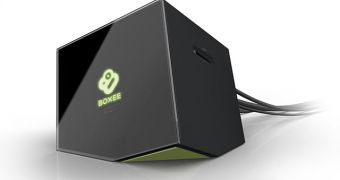Intel may be trying to expand to as many chip markets as possible, but Smart TVs have turned out to be a failed venture, the company having announced that it would stop making Smart TV chips.
Given the quasi PC-like nature of Smart TVs, it was no shock to learn that Intel wanted to get its processors inside them.
It even made the CE4100 Atom SoC (system-on-chip), which ended up inside the Boxee Box and Google TV.
Unfortunately, for the Santa Clara, California-based company at least, its efforts to make itself the preferred supplier, over ARM, failed.
Intel practically said this when it announced that it would completely stop developing Smart TV SoC, though it would continue to make and support Atom CE4100 chips for a while (the Digital Home Group was disbanded).
"This was a tough decision; Intel led the creation and launch of the smart TV category and its first products," said an Intel spokesperson, according to Gigaom.
As such, at least Boxee products won't suddenly vanish and Boxee, as well as Google, will have time to move over to ARM.
“Boxee’s always been hardware agnostic. We built Boxee to run on multiple chipsets,” Boxee VP of Marketing Andrew Kippen said. “Our first Alpha was actually built on an ARM based chipset.”
Google didn't seem overly phased by the development either, though it was deliberately non-specific in its e-mailed comment.
“Intel has been a great partner for us throughout the launch of Google TV. We continue to work with many chipset partners, including Intel, to bring new Smart TV products to the market,” the spokesperson told Gigaom.
Intel will keep making pay-TV and set-top-box chips and will contribute to development of cable modems and the like.
ARM hasn't come out to say anything in an official capacity yet, but it doesn't have to, since this is a fairly obvious victory point for its score sheet.

 14 DAY TRIAL //
14 DAY TRIAL //